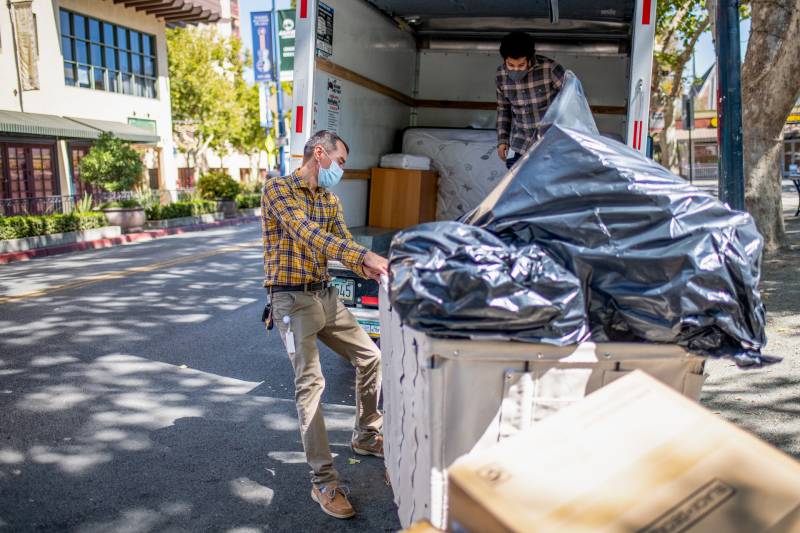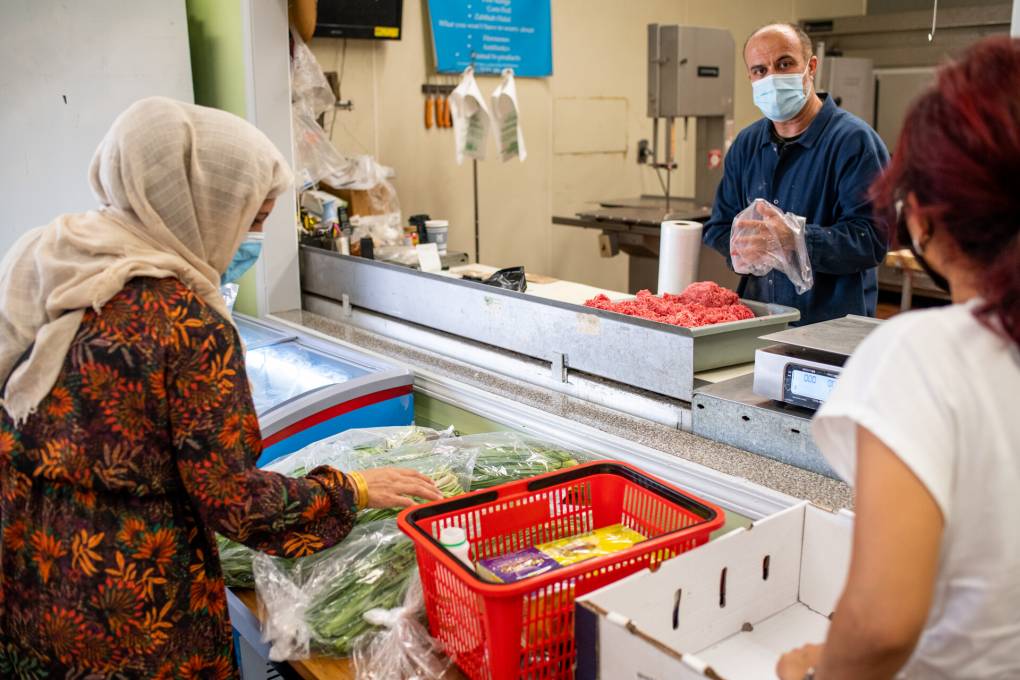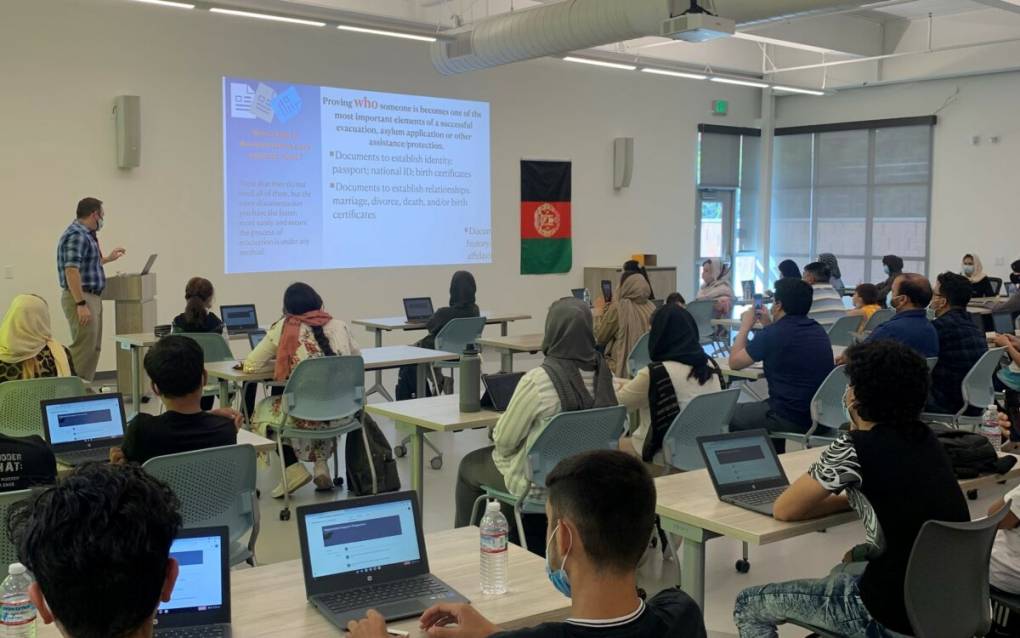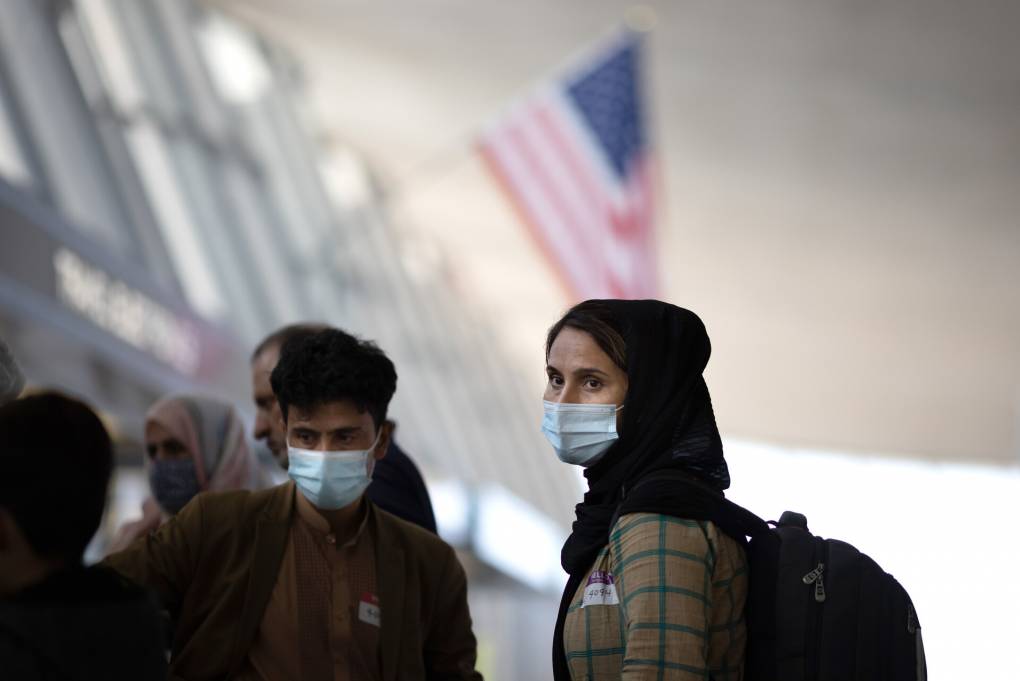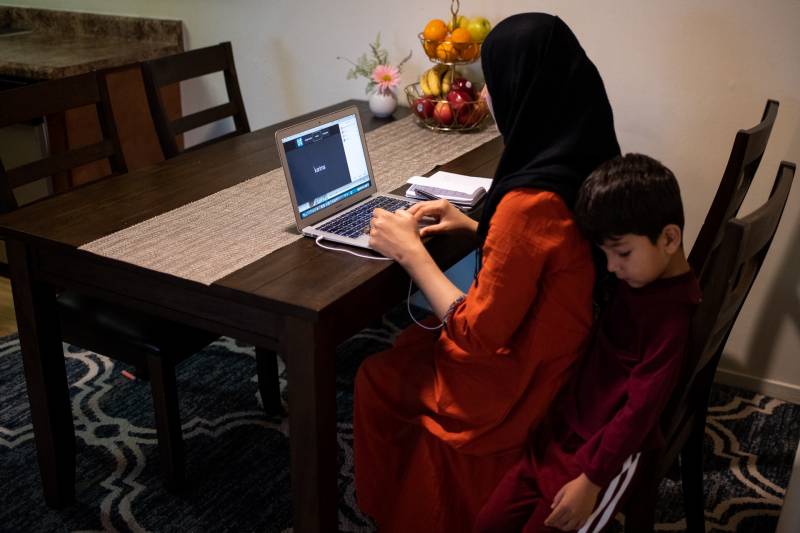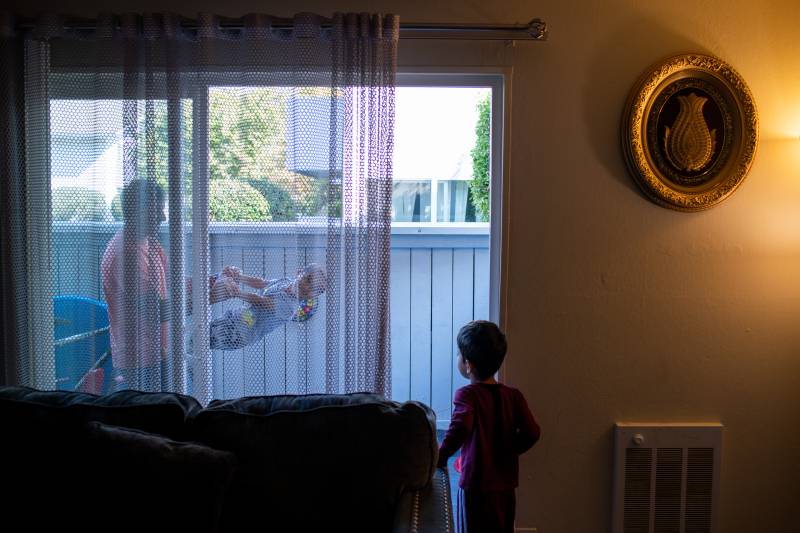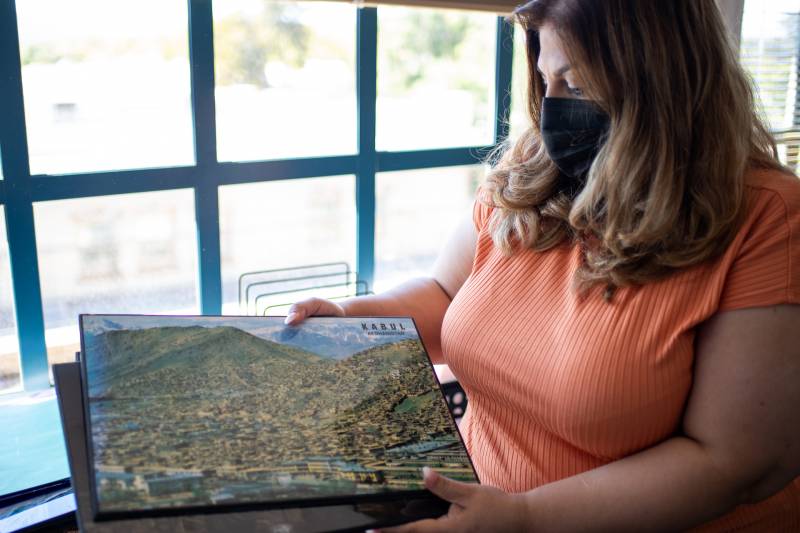On a recent morning at the Concord office of Jewish Family and Community Services East Bay, staff members filled an enormous laundry cart with basic supplies for a new household — a family of seven, just arrived from Afghanistan. They loaded up new pillows, sheets, comforters, towel sets, pots and pans, and a microwave oven still in the box.
As he helped wheel the cart to an elevator and out to the street, the father of the family looked bleary. He said they had gotten on a flight out of Kabul on Aug. 27, the day after a suicide bombing at the airport killed at least 175, and then spent over a week in transit.
The man said he had worked for U.S. Army Special Forces as an interpreter, and asked not to be identified because he feared the Taliban could harm his relatives back home if they knew he had left the country.
The man, his wife and their five children are among at least 2,000 Afghan evacuees who have arrived in California since July — most coming to the Bay Area and Sacramento. The East Bay office of JFCS has resettled 137.
And as the new arrivals begin to put the pieces of their lives together, the established Afghan community here is stepping up to help. It turns out Afghans who call Northern California home know a lot about what the newcomers are going through.
“We’re helping them, the same as if they were our family or our friends,” said Ashraf Hussain, the JFCS case manager who pushed the cart to the curb. “I feel so happy when I’m helping.”
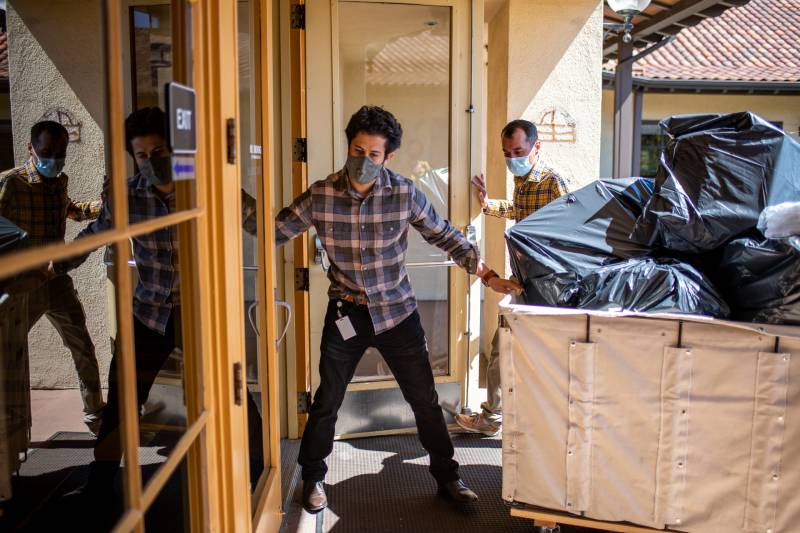
Hussain loaded the bedding and kitchenware into a U-Haul, along with donated mattresses and furniture. He says when he arrived from Afghanistan in 2017, he did not get connected with a resettlement agency and had to fend for himself. Now, he wants his clients to have an easier path.
Hussain also was a U.S. Army interpreter. And, like this new family, he arrived on a special immigrant visa, which qualifies recipients for refugee benefits. Hussain’s job is to help this new family apply for food stamps and Medi-Cal, find housing in the costly Bay Area and enroll the kids in school.
Establishing stability for families fleeing chaos
Typically, Afghans airlifted out of Kabul were flown to Qatar and then to U.S. military bases in Germany, Italy or Uganda, says Fouzia Azizi, JFCS's director of refugee services. From there they travel to bases in the U.S. where they get medical screenings, coronavirus vaccinations and paperwork processed. Jewish Family and Community Services estimates that there are currently more than 53,000 Afghan evacuees at military bases in the U.S. and at least another 12,000 who will eventually arrive here.
Azizi says all the practical help Hussain and other staff members provide is the first step to establishing stability for families who have fled chaos.
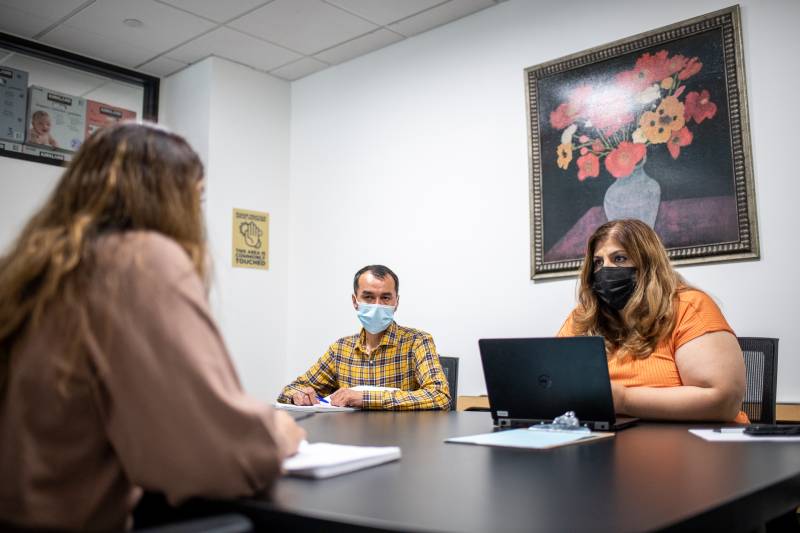
“There's trauma involved. There’s fear involved. And the anxiety level is so high,” she said. “Folks that are getting here, they are extremely overwhelmed due to the long process. ... And also, they left their loved ones at home.”
But the new arrivals need more than beds and kitchenware. They need a sense of connection and emotional support, she says.
